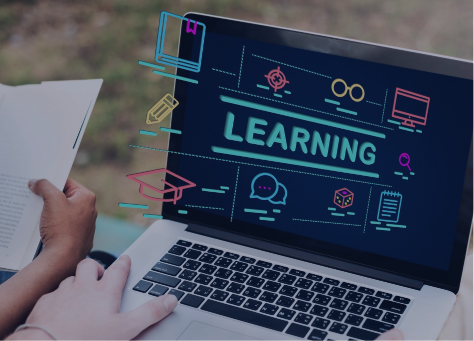
Apply the knowledge of mathematics, science, engineering fundamentals, and an engineering specialization to the solution of complex engineering problems.

Identify, formulate, review research literature, and analyze complex engineering problems reaching substantiated conclusions using first principles of mathematics, natural sciences, and engineering sciences.

Design solutions for complex engineering problems and design system components or processes that meet the specified needs with appropriate consideration for the public health and safety, and the cultural, societal, and environmental considerations.

Use research-based knowledge and research methods including design of experiments, analysis and interpretation of data, and synthesis of the information to provide valid conclusions.

Create, select, and apply appropriate techniques resources, and modern engineering and IT tools including prediction and modeling to complex engineering activities with an understanding of the limitations.

Apply reasoning informed by the contextual knowledge to assess societal, health, safety, legal and cultural issues and the consequent responsibilities relevant to the professional engineering practice.

Understand the impact of the professional engineering solutions in societal and environmental contexts, and demonstrate the knowledge of, and need for sustainable development.

Apply ethical principles and commit to professional ethics and responsibilities and norms of the engineering practice.

Function effectively as an individual, and as a member or leader in diverse teams, and in multidisciplinary settings.

Communicate effectively on complex engineering activities with the engineering community and with society at large, such as, being able to comprehend and write effective reports and design documentation, make effective presentations, and give and receive clear instructions.

Demonstrate knowledge and understanding of the engineering and management principles and apply these to one’s own work, as a member and leader in a team, to manage projects and in multidisciplinary environments.

Recognize the need for, and have the preparation and ability to engage in independent and life-long learning in the broadest context of technological change.

Software Developer, Google
Department
Year of Passing
Package


Frontend Developer, Microsoft
Department
Year of Passing
Package


Backend Developer, Infosys
Department
Year of Passing
Package


Recruiters

Offers

Highest Package

Average CTC

Recruiters

Offers

Highest Package

Average CTC

Recruiters

Offers

Highest Package

Average CTC

SV Colleges have upheld a rigorous commitment to the curriculum and the programs that we offer, with a wide range of courses at our four institutions spread across Kadapa and Tirupati campuses.
@2023 SVCE | Copyrights reserved